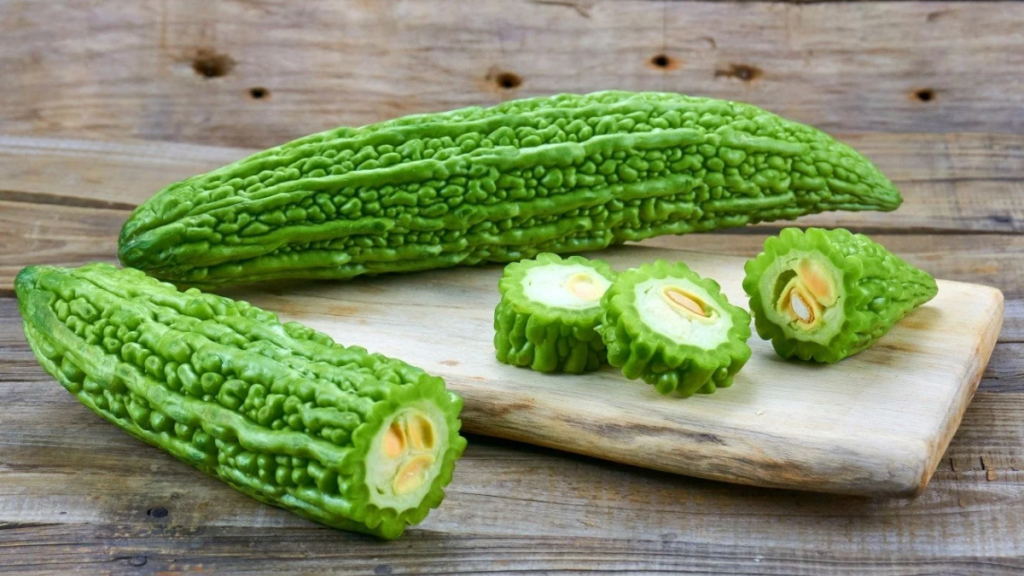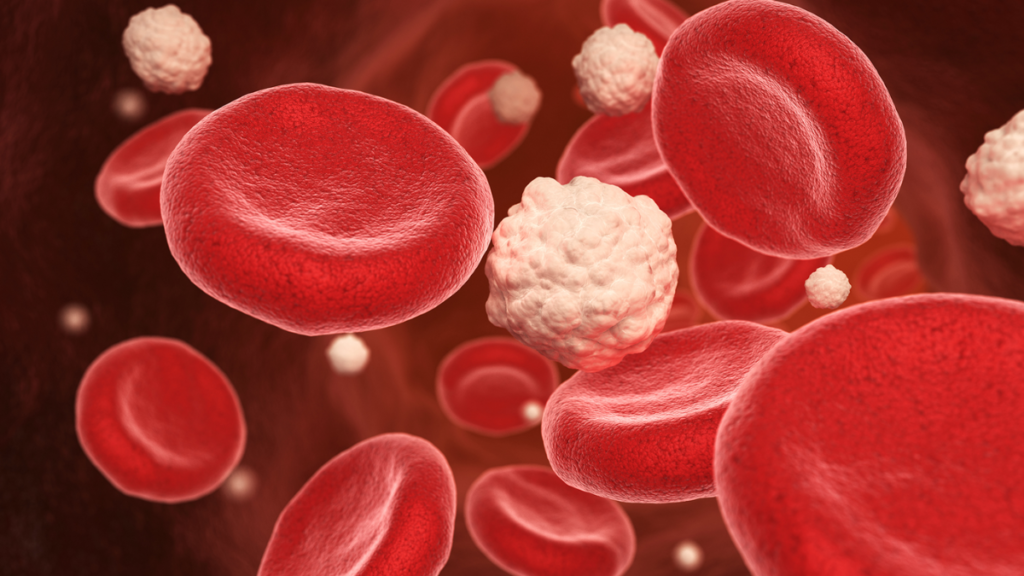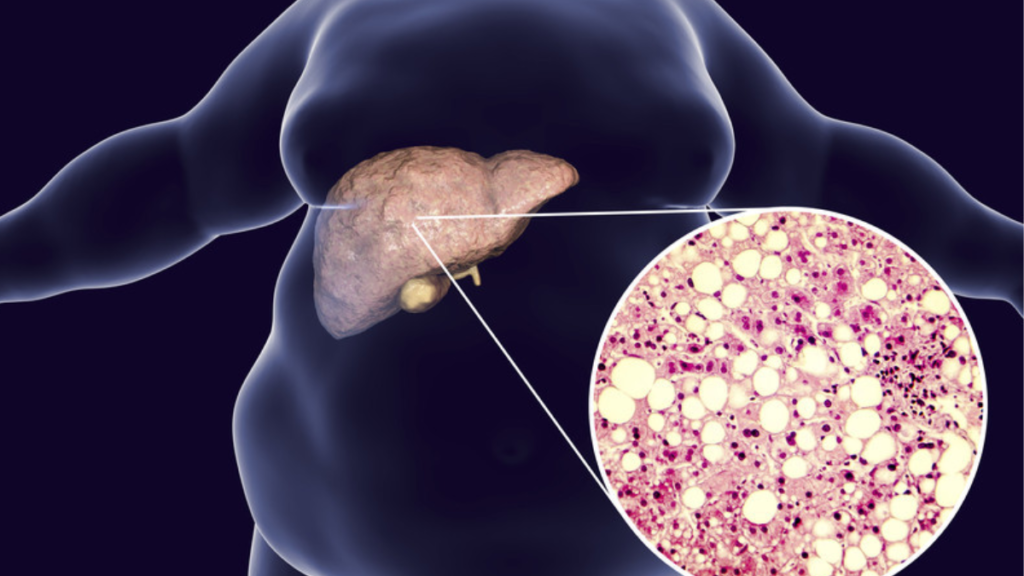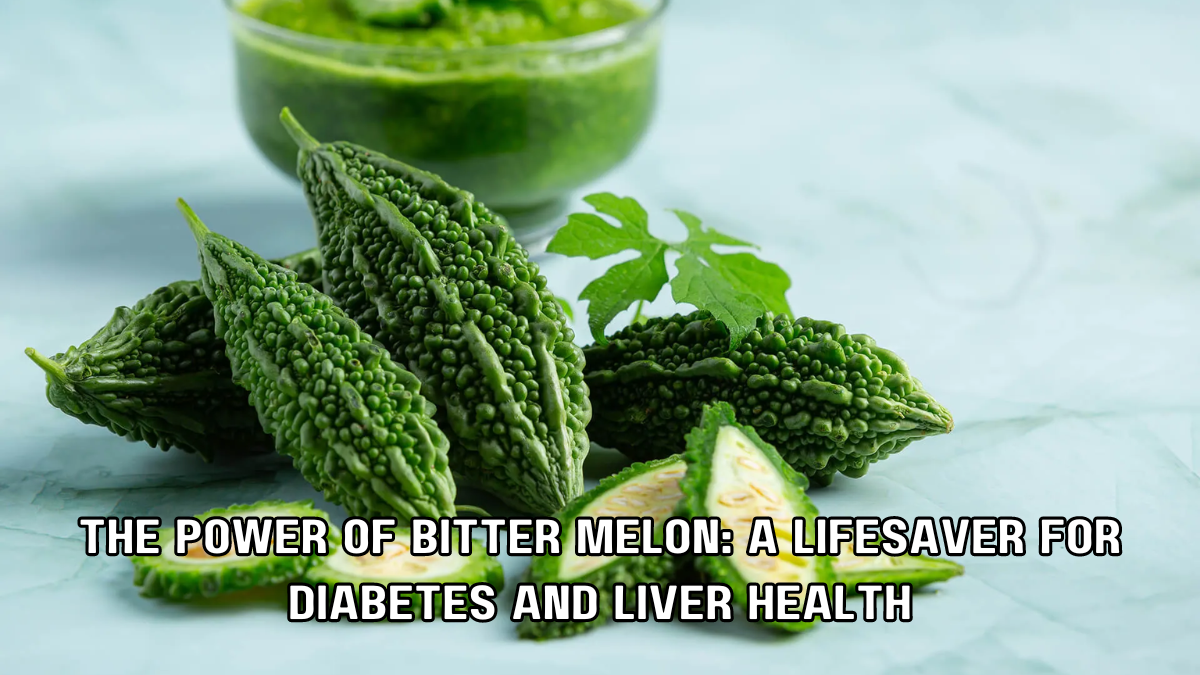Introduction:
In the world of natural remedies, few vegetables boast the impressive health benefits of bitter melon, also known as bitter gourd or Momordica charantia. This tropical fruit, often used in Asian and African cuisines, has gained recognition for its potential to significantly improve the health of individuals with diabetes and reduce liver fat. Let’s delve into the science and explore how this humble vegetable can be a game-changer for those battling these common health issues.
The Dual Health Challenge: Diabetes and Fatty Liver Disease:

Diabetes and non-alcoholic fatty liver disease (NAFLD) are two prevalent conditions that often go hand-in-hand. Diabetes, characterized by high blood sugar levels, affects millions worldwide and increases the risk of cardiovascular diseases, nerve damage, and other serious complications. NAFLD, the accumulation of fat in liver cells not caused by alcohol consumption, is closely linked to obesity and insulin resistance. Both conditions are part of the metabolic syndrome, a cluster of conditions that occur together, raising the risk of heart disease, stroke, and type 2 diabetes.
Bitter Melon: The Nutrient Powerhouse

Bitter melon is packed with essential nutrients that contribute to its health benefits. It is rich in vitamins A, C, and E, along with a host of B vitamins. It also contains minerals like potassium, calcium, zinc, magnesium, and phosphorus. But what sets bitter melon apart is its array of bioactive compounds, including charantin, polypeptide-p (an insulin-like compound), and vicine, which are believed to contribute to its therapeutic effects.
How Bitter Melon Benefits Diabetics:
1. Blood Sugar Regulation:

Bitter melon contains compounds that act similarly to insulin, helping to lower blood glucose levels. Studies have shown that bitter melon extract can improve insulin sensitivity and decrease fasting blood glucose levels. This makes it a valuable dietary addition for managing type 2 diabetes.
2. Enhancing Cellular Glucose Uptake:

The compounds in bitter melon promote the uptake of glucose by cells, thus reducing blood sugar levels. This is crucial for preventing the spikes and crashes associated with diabetes.
3. Inhibition of Glucose Production:

Bitter melon also inhibits enzymes involved in glucose production in the liver, further helping to maintain stable blood sugar levels.
Bitter Melon and Liver Health:
1. Reduction of Liver Fat:

NAFLD is characterized by excess fat accumulation in the liver. Bitter melon has been shown to reduce lipid accumulation in the liver, thereby lowering the risk of liver inflammation and damage. Animal studies have demonstrated that bitter melon can decrease liver fat and improve liver function.
2. Antioxidant Properties:

Bitter melon is rich in antioxidants, which combat oxidative stress, a key factor in liver damage. These antioxidants help protect liver cells from damage caused by free radicals.
3. Anti-Inflammatory Effects:

Chronic inflammation is a significant contributor to liver disease. Bitter melon has anti-inflammatory properties that can help reduce inflammation in the liver, promoting better liver health.
Incorporating Bitter Melon into Your Diet:

Integrating bitter melon into your diet can be straightforward and delicious. Here are a few tips:
- Juicing: Bitter melon juice, though quite bitter, is a potent way to consume the vegetable. Mixing it with other vegetable or fruit juices can make it more palatable.
- Stir-Frying: Sliced bitter melon can be stir-fried with garlic, onions, and other vegetables. Adding a bit of salt or soy sauce can enhance its flavor.
- Curry and Soups: Bitter melon is a common ingredient in many Asian curries and soups. Its strong flavor is often balanced with spices and other vegetables.
- Supplements: For those who find the taste too strong, bitter melon supplements are available in capsule or powder form.
Conclusion:
Bitter melon stands out as a powerful natural remedy for managing diabetes and improving liver health. Its ability to regulate blood sugar levels and reduce liver fat makes it an essential addition to the diet of anyone looking to improve their metabolic health. While more research is needed to fully understand the extent of its benefits, the existing evidence is promising. By incorporating bitter melon into your diet, you can take a significant step towards better health and well-being.












